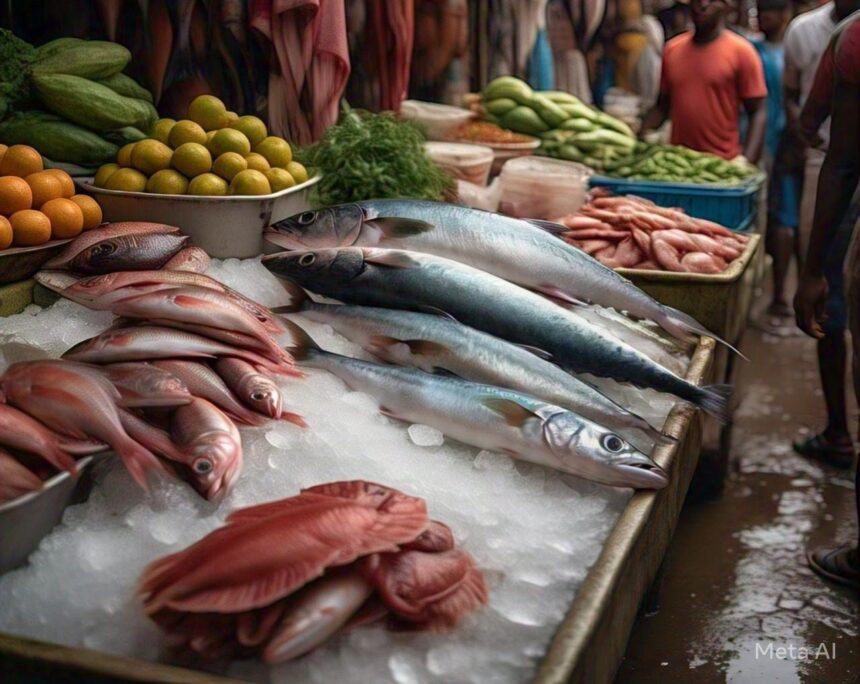A team of researchers, led by Mary Opeyemi Adebote, has uncovered alarming levels of toxic metals in imported fish widely consumed across Nigeria. The findings, published in the Aceh Journal of Animal Science, revealed that popular fish such as Atlantic mackerel, Pacific herring, and Chilean jack mackerel—commonly sold in Nigerian markets—contain excessive levels of lead (Pb), cadmium (Cd), and iron (Fe), surpassing the safe limits set by the World Health Organization (WHO).
The study revealed that many of the fish Nigerians rely on for affordable protein are contaminated with toxic metals. For instance, lead levels in some fish samples were more than 20 times above the safe limit. Lead is highly toxic and can cause developmental issues in children, such as learning difficulties, and kidney damage in adults.
Similarly, cadmium, found in all fish samples, can accumulate in the body over time, leading to weakened bones and kidney problems. Even iron, which is essential for health, was present in excessive amounts, posing risks such as liver damage and heart disease.
Although zinc levels were within safe limits, offering some reassurance, the overall findings remain deeply concerning. The contaminated fish, commonly known as “titus,” “shawa,” and “kote,” are frequently sold in local markets and cold rooms, making them easily accessible to families nationwide. For many Nigerians, fish is a staple food, but this study suggests that long-term consumption could pose serious health risks. Given the rising incidence of cancer in Nigeria, increased attention must be paid to daily food consumption.
During a phone interview, lead researcher Mary Opeyemi Adebote, a fellow at the Global Change Center, expressed her concerns, stating, “These findings are a wake-up call. Fish is a major protein source for millions of Nigerians, but the high levels of toxic metals we found pose serious health risks. We need stricter regulations and better monitoring to ensure the safety of imported fish.”
Mary, an expert in Fisheries Science with over seven years of research experience, emphasised the importance of addressing environmental pollution and its impact on food security. Her work focuses on fisheries conservation and the effects of climate change on aquatic ecosystems.
While regulatory changes are underway, consumers are advised to take precautions. Families who regularly purchase imported fish such as mackerel or hake from local markets should consider reducing their consumption, particularly for vulnerable groups such as children and pregnant women. Instead, they are encouraged to diversify their diets with safer protein sources such as locally sourced fish, beans, eggs, and poultry. Staying informed about food safety updates from health authorities is also crucial.
The study calls for urgent action from the Nigerian government to implement appropriate policies, raise public awareness campaigns, and enforce stringent monitoring of imported fish through relevant agencies such as the Federal Fisheries Department (FDF). Mary’s team highlights the critical need to balance food security with food safety. As she puts it, “We cannot ignore the risks. Protecting public health must be a priority.”
WATCH TOP VIDEOS FROM NIGERIAN TRIBUNE TV
- Let’s Talk About SELF-AWARENESS
- Is Your Confidence Mistaken for Pride? Let’s talk about it
- Is Etiquette About Perfection…Or Just Not Being Rude?
- Top Psychologist Reveal 3 Signs You’re Struggling With Imposter Syndrome
- Do You Pick Up Work-Related Calls at Midnight or Never? Let’s Talk About Boundaries






